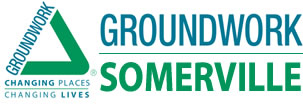Ronald, Co-Coordinator of CCP, quoted in the Boston Globe
Click here for link to full article
By Matt Byrne, Town Correspondent
In a public forum that seemed part listening tour, part group therapy session, the Massachusetts Department of Transportation heard citizen concerns last night during the first meeting in the Mystic Valley Parkway portion of the Green Line Extension visioning process.
The gathering of about 100 at the Brook Elementary School in Medford was the first in a year-long series that is slated to examine the broad-stroke implications of a Green Line station at Route 16 near the Medford and Somerville border. The plan is still exploratory; construction would start no earlier than 2016, according to the state.
The public input process will culminate in a report that will help shape plans for the Green Line extension’s future. Currently, the first phase of the effort will extend the line from Lechmere Station to the College Avenue area. Phase two, which was the focus of last night’s discussion, posits a station at Mystic Valley Parkway.
“We need to hear from you, to understand how to proceed without endangering community values,” said Eric Bourassa, of the Metropolitan Area Planning Council, an organization that promotes smart growth in communities around Boston.
“We understand that people still have a lot of questions,” he said.
And ask them, they did.
In a break from more staid formats, the meeting’s organizers broke the audience into a dozen groups, each led by a facilitator and note-taker. Together, the groups sussed out concerns, hopes, and tips that collectively will inform the process going forward, officials said.
“We are really here tonight to hear from you,” said Katherine Fichter, of the Office of Transportation Planning, at the meeting’s opening.
In the groups, each with about a dozen people, conversation ranged from metered discussions of parking strategy, to heated exchanges over accessibility and the history of the extension effort.
The facilitators — staff from the Massachusetts Office of Public Collaboration, a conflict mediation institute attached to the University of Massachusetts Boston — emphasized civility and involvement through the evening. Groups met for about an hour, and from a small sampling of the responses, many people hit on similar themes.
Parking, accessibility for seniors and the disabled, station size, eminent domain questions, and many others will help any station built there become a better part of the community, the state said.
The agency also debuted an electronic system for gathering instant feedback from audience members on poll questions. Members of the public were offered gray remotes that allowed them to vote instantly on multiple choice questions displayed on a large screen.
The system gave officials an instant snap-shot of the crowd; the majority of the approximately 100 people in the audience were white, in their 50s, mostly from Medford, and later in the evening, a majority of people said the unusual meeting format let them feel heard.
“I was very impressed,” said Clarinda Spinelli, 59, who lives on Monument Street in West Medford, a strong advocate of the extension who said her biggest concern is that the project will never get the green light.
“I want the least damage to the least number of people,” Spinelli said, and said she is concerned about representing disparate stakeholder groups.
Nearly all of the groups reported back concerns about engagement with slices of the community not heard at the meeting, including seniors, people with disabilities, and youth, all of whom would eventually use a station stop at Mystic Valley Parkway.
Ronald Leaks, 28, of the Community Corridor Planning group of Groundwork Somerville, said he attended the meeting to begin the process of youth involvement in the land-use talks, a group he said was under-represented.
“When we talk about building a Green Line, I want to make sure its not the same group of people get involved,” Leaks said.
